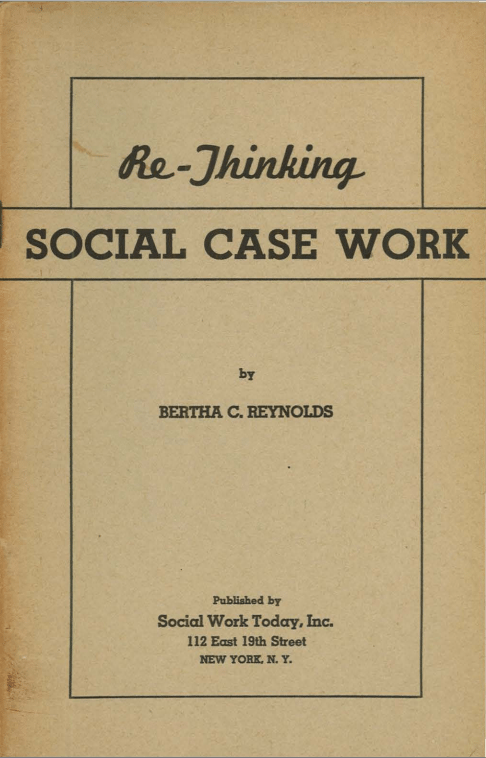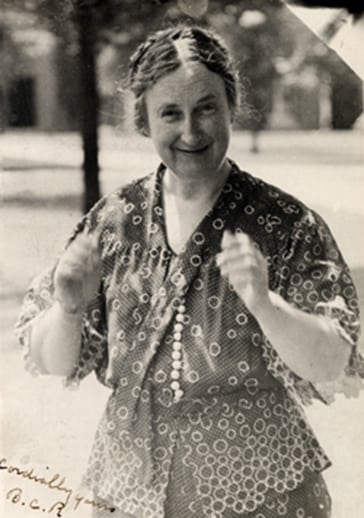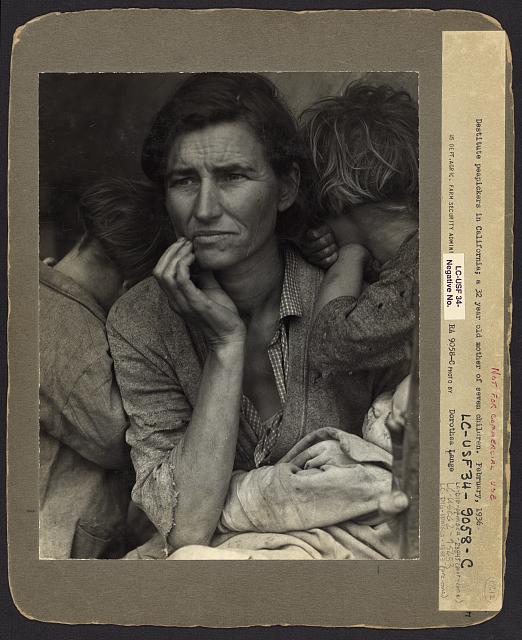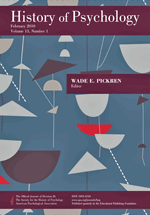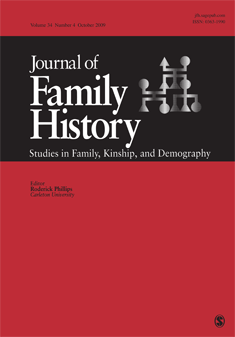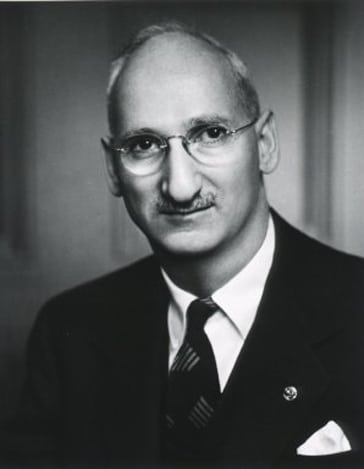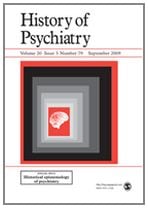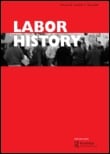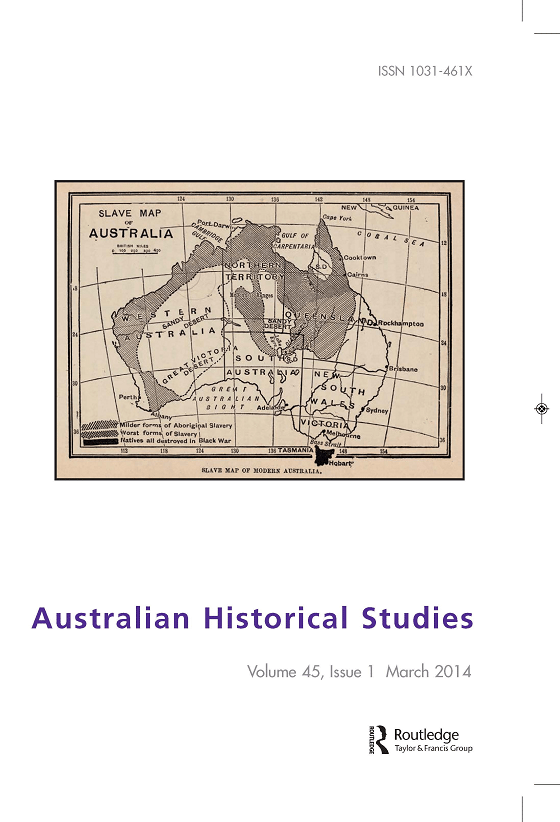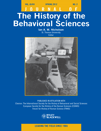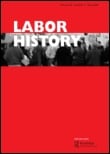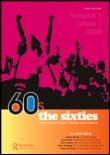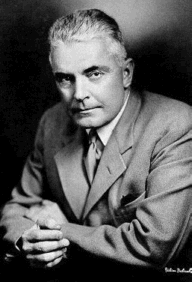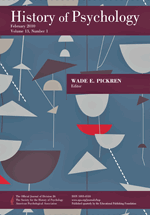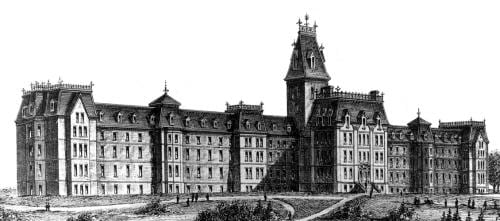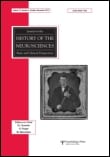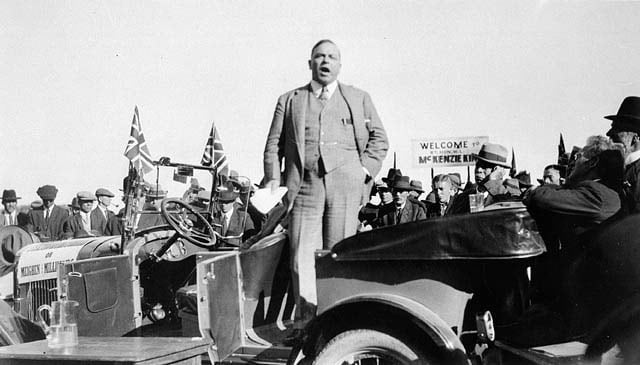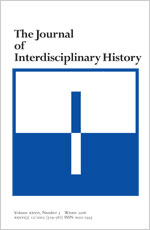1934 Bertha Reynolds
After some years of practice, she returned to Smith College for training as psychiatric social worker. Although attracted to the thinking of Freud, Reynolds wasn’t happy with the development within social work that pathologized every problem, turning it into an individual issue, a personal problem. She saw more benefit in structural and institutional approaches combined with care for the individual. As such, she can be seen as one of the forerunners of what later became radical social work.
Insanity, philanthropy and emigration: dealing with insane children in late-nineteenth-century north-west England
Japanese psychoanalysis and Buddhism: the making of a relationship
Destitute pea pickers in California. Mother of seven children. Age thirty-two. Nipomo, California
Max Wertheimer, Habilitation candidate at the Frankfurt Psychological Institute.
Constructions of Childhood in Early Modern Jewish Ego-documents
Marriage and Divorce in the Late Ottoman Empire: Social Upheaval, Women’s Rights, and the Need for New Family Law
1936 The dodo-bird and social work what matters? Interventions or common factors?
Shifting boundaries between the normal and the pathological: the case of mild intellectual disability
You Can’t Pick Your Family: Celebrating Israeli Familism around the Seder Table
The politics of managerial reform in UK local government: a study of control, conflict and resistance 1880s to present
John Locke on madness: redressing the intellectualist bias
In Defence of White Australia: Discouraging ‘Asian Marriage’ in Postwar South-East Asia
Turning Men into Machines? Scientific Management, Industrial Psychology, and the Human Factor
Companions of Heart and Hearth: Hardship and the Changing Structure of the Family in Early Modern English Townships
Solidarity means inclusion: race, class, and ethnicity within Tampa’s transnational Cigar Workers’ Union
Building sanctuary: the movement to support Vietnam War resisters in Canada, 1965–1973
Protest, Land Rights and Riots: Postcolonial Struggles in Australia in the 1980s.
Who Was Little Albert? The Story Continues…
Belonging in the Midwest: Norwegian Americans and the Process of Attachment, ca. 1830–1860
Chinese psychology archives in historical contexts
Resilience of institutional culture: mental nursing in a decade of radical change
The Historical Institutional Abuse Inquiry
IFSW Historical Documents on Setting up the International Permanent Secretariat of Social Work in 1932
Left Activism, Succour and Selfhood: the epistolary friendship of two revolutionary mothers in 1970s Britain
Women, Marriage and Work in the British Diplomatic Service
Meeting The Beatles: what Beatlemania can tell us about West Germany in the 1960s
Ideological dimensions of the “Balkan Family Pattern” in the first half of the 20th century
The Padded Cell
As infamous as the Asylums themselves, the Padded Cell was an essential piece of equipment within the wards. They were a special room and it was not intended that patients were housed in them for long periods of time; it was used so that patients did not harm themselves when suffering from an epileptic or psychotic episode. Suicidal and violent patients were also placed within them.
“To Everything There Is a Season:” Pete Seeger and the Power of Song
Falconwood Site: 115 Murchison Lane, Charlottetown, Prince Edward Island, C1A, Canada
Cold War Progressives: women’s interracial organizing for peace and freedom
‘No Suggestion of Suffragettism’: the Blue Blouses in Ireland, 1933–1936
Sir William Beveridge
Asylum Architecture: The Radial Plan
Making Modern Love: sexual narratives and identities in interwar Britain; LISA Z. SIGEL
Broca and Charcot’s Research on Jacques Inaudi: The Psychological and Anthropological Study of a Mental Calculator
In the nineteenth century, French scientific institutions became interested in young “mental calculators,” arithmetical prodigies able to quickly and accurately perform complex mental calculations. The first scientists to study mental calculators were phrenologists who sought to prove the existence of a calculating organ in the frontal lobe.
Dangerous World, Dangerous Liberties: Aspects of the Smith Act Prosecutions
Beginning an ‘Extraordinary Opportunity’: Eleanor Roosevelt, Molly Dewson, and the expansion of women’s boundaries in the Democratic Party, 1924–1934
The Rise and Decline of Psychiatric Hydrotherapy
‘Rapid tranquillisation’: an historical perspective on its emergence in the context of the development of antipsychotic medications
William Lyon Mackenzie King
Cruel Modernity
South-Eastern Europe: challenges and prospects for family history
Detroit’s Cold War: The Origins of Postwar Conservatism
Well-Being and Growth: A Diachronic Discourse
Winning for Losing: A New Look at Harry Bridges and the “Big Strike” of 1934
Lenox Hill Neighborhood House
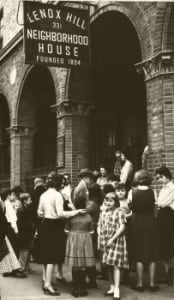 Social Welfare History Project
Social Welfare History Project
Lenox Hill Neighborhood House was founded in 1894 by the Alumnae Association of Normal College (now known as Hunter College of the City University of New York) as a free kindergarten for the children of indigent immigrants. Since then, we have remained at the forefront of community advocacy and social and educational change. We have long been a center of community leadership in addressing such issues as affordable housing, poor working conditions, health care, hunger, early childhood education, poverty, unemployment, homelessness, juvenile delinquency, crime prevention and long-term care for older adults.
